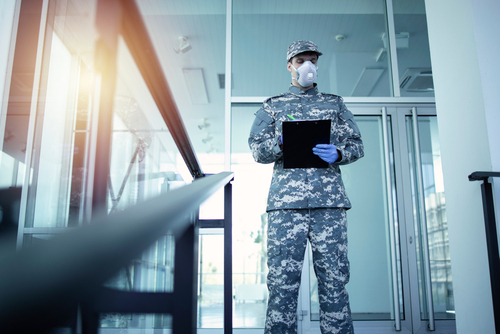
U.S. Sens. Joni Ernst (R-IA) and Thom Tillis (R-NC) are encouraging the Department of Defense (DOD) to conduct rapid antigen COVID-19 tests of military service members, their families, civilians, and contractors.
The effort stems from aiding in detecting asymptomatic virus carriers while ensuring military readiness.
The members of the Senate Armed Services Committee have forwarded correspondence to the DOD citing the risk of military personnel and families unknowingly contracting and spreading coronavirus – and the impact it could have on national security.
“As the U.S. military continues to face the challenge of the COVID-19 pandemic, we are writing to you to urge the Department of Defense to begin rapid surveillance testing of military personnel, their families, civilian employees, and contractors in order to save lives, preserve hospital capacity, and maintain military readiness,” the legislators wrote.
The Families First Coronavirus Response Act and the bipartisan CARES Act, which Ernst supported, ensured access to free COVID-19 testing without out-of-pocket costs, officials said.
Additionally, in the wake of reports surfacing insurance companies were using loopholes to deny or restrict coverage for COVID-19 testing, Ernst supported an effort to ensure Iowans have access to affordable COVID-19 tests, insurance covering antibody tests, and that testing information is efficiently shared among healthcare providers and public health officials.
“We urge you to immediately make plans to utilize the latest rapid antigen testing for coronavirus to detect the asymptomatic carriers of coronavirus,” the lawmakers concluded. “Given the extremely lower cost of an antigen test compared to a PCR test, the Department of Defense already has the resources to conduct multiple antigen-tests over a two-week or four-week period, similar to the U.S. Marine Corps study, to help reduce the chance of a false-negative test result.”




